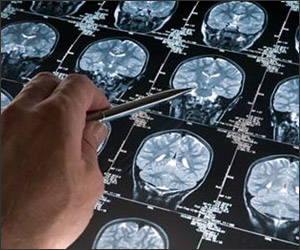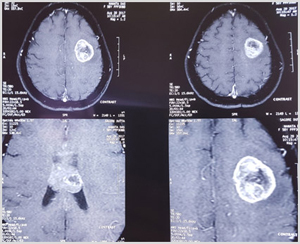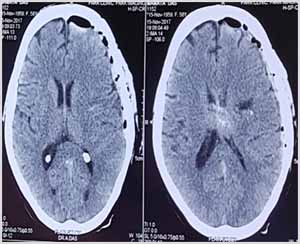Welcome To our Website.
"The Healing Hands"
Welcome To our Website.
"The Healing Hands"

A brain tumor is a collection, or mass, of abnormal cells in your brain. Your skull, which encloses your brain, is very rigid. Any growth inside such a restricted space can cause problems. Brain tumors can be cancerous (malignant) or noncancerous (benign). When benign or malignant tumors grow, they can cause the pressure inside your skull to increase. This can cause brain damage, and it can be life-threatening.
Brain tumors are categorized as primary or secondary. A primary brain tumor originates in your brain. Many primary brain tumors are benign. A secondary brain tumor, also known as a metastatic brain tumor, occurs when cancer cells spread to your brain from another organ, such as your lung or breast.
Primary brain tumors originate in your brain. They can develop from your:
Primary tumors can be benign or cancerous. In adults, the most common types of brain tumors are gliomas and meningiomas.

Gliomas are tumors that develop from glial cells. These cells normally:
Gliomas can develop from different types of glial cells. The types of tumors that begin in glial cells are:
Other primary brain tumors include:
Most meningiomas and schwannomas occur in people between the ages of 40 and 70. Meningiomas are more common in women than men. Schwannomas occur equally in both men and women. These tumors are usually benign, but they can cause complications because of their size and location. Cancerous meningiomas and schwannomas are rare but can be very aggressive.

Secondary brain tumors make up the majority of brain cancers. They start in one part of the body and spread, or metastasize, to the brain.
The following can metastasize to the brain:
Secondary brain tumors are always malignant. Benign tumors don’t spread from one part of your body to another.
Risk factors for brain tumors include:
Only about 5 to 10 percent of all cancers are genetically inherited, or hereditary. It’s rare for a brain tumor to be genetically inherited. Talk to your doctor if several people in your family have been diagnosed with a brain tumor. Your doctor can recommend a genetic counselor for you.
Risk for most types of brain tumors increases with age.
Brain tumors in general are more common among Caucasians. However, African-American people are more likely to get meningiomas.

Being exposed to certain chemicals, such as those you might find in a work environment, can increase your risk for brain cancer. The National Institute for Occupational Safety and Health keeps a list of potential cancer-causing chemicals found in work places.
People who have been exposed to ionizing radiation have an increased risk of brain tumors. You can be exposed to ionizing radiation through high-radiation cancer therapies. You can also be exposed to radiation from nuclear fallout. The nuclear power plant incidents in Fukushima and Chernobyl are examples of how people can be exposed to ionizing radiation.
According to the American Brain Tumor Association, people with a history of childhood chicken pox have a decreased risk of getting brain tumors.
Symptoms of brain tumors depend on the location and size of the tumor. Some tumors cause direct damage by invading brain tissue and some tumors cause pressure on the surrounding brain. You’ll have noticeable symptoms when a growing tumor is putting pressure on your brain tissue.
Headaches are a common symptom of a brain tumor. You may experience headaches that:

You may also experience:

Other common symptoms include:
Symptoms of Pituitary Tumors : The following symptoms can occur with pituitary tumors:

